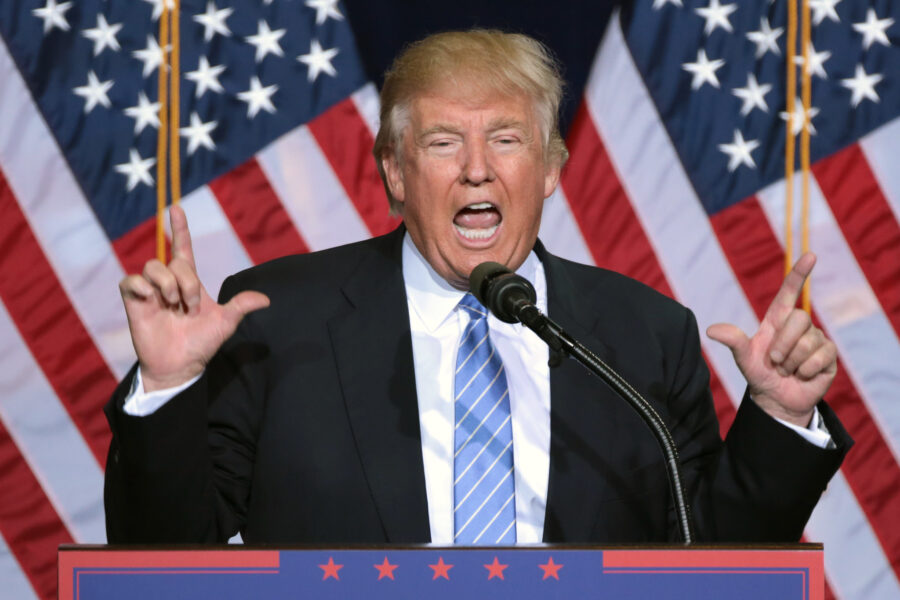WASHINGTON — Exactly two months out from the presidential election, U.S. District Judge Tanya Chutkan plans to move ahead with the case accusing former President Donald Trump of subverting the 2020 presidential election results, telling Trump’s attorneys that she is “not concerned with the electoral schedule.”
Trump, the Republican presidential nominee, did not appear in federal court for Thursday’s hearing in Washington, D.C., but his lawyers pleaded not guilty on his behalf to the four charges that remained unchanged in U.S. special counsel Jack Smith’s new indictment, filed last week.
The case had been in a holding pattern for eight months as Trump appealed his claim of presidential immunity all the way to the U.S. Supreme Court. Chutkan’s anticipated new timeline for the case — which she could release as early as Thursday — is still expected to assure Trump will not face trial before Election Day in November.
U.S. prosecutors say they are ready to restart the case in the coming weeks, while Trump’s team has argued for more time to review evidence and dismiss the superseding indictment.
The Supreme Court returned Trump’s case to the trial court after ruling that former presidents are immune from criminal charges for official “core constitutional” acts while in office and hold at least presumptive immunity for “outer perimeter” activities, but not for personal actions.
This gave Chutkan, an Obama administration appointee, the major task of parsing Smith’s indictment, deciding which allegations against Trump fall under the umbrella of official acts and which relate to actions taken in a personal capacity.
Chutkan skeptical
Chutkan did not issue any decisions on immunity at the Thursday hearing but rather spent significant time grilling Trump’s attorney John Lauro on why he believes it is “unseemly” for Smith’s office to lay out its case this month in an opening brief. Thomas Windom, a federal prosecutor in Smith’s office, said the government would be ready to file the brief by the end of September.
Lauro argued that Smith wanting to file “at breakneck speed” is “incredibly unfair that they are able to put in the public record (evidence) at this sensitive time in our nation’s history.”
“I understand there’s an election impending,” Chutkan snapped back, reminding him that it “is not relevant here.”
“Three weeks is not exactly breakneck speed,” Chutkan added.
Lauro argues that Chutkan should examine parts of the indictment that accuse Trump of pressuring then-Vice President Mike Pence to accept false slates of electors leading up to Pence’s ceremonial role in certifying the election results on Jan. 6, 2021.
“The problem with that issue is if in fact the communications are immune, then the entire indictment fails,” Lauro argued.
“I’m not sure that’s my reading of the case,” Chutkan replied.
The government maintains that all actions and communications by Trump described in the new indictment were “private in nature,” Windom argued.
Chutkan also spent time during the roughly 75-minute hearing questioning Lauro on the Trump legal team’s numerous plans to request the case’s dismissal. One anticipated plan is to try its successful play in Florida, where a Trump-appointed federal judge tossed his classified documents case after Trump argued Smith was illegally appointed as special counsel.
Chutkan said she will allow the defense to file that motion but warned that attorneys must provide convincing arguments on why “binding precedent doesn’t hold” for the time-tested position of special prosecutor.
New indictment, same charges
Trump is charged with conspiracy to defraud the United States; conspiracy to obstruct an official proceeding; obstruction of, and attempt to obstruct, an official proceeding; and conspiracy against rights for his alleged role in conspiring to create false electors from seven states and spreading knowingly false information that whipped his supporters into a violent attack on the U.S. Capitol on Jan. 6, 2021.
A federal grand jury handed up a revised indictment Aug. 27 in an effort to tailor the charges to the Supreme Court’s July 1 immunity ruling. The fresh indictment omitted any references to Trump’s alleged pressure campaign on Justice Department officials to meddle in state election results.
But the document added emphasis on Trump’s personal use of social media outside of his actions as president, and said he and several co-conspirators schemed outside of his official duties. The new indictment also stressed Trump’s pressure on Pence to accept the fake electors in his role outside of the executive branch as president of the Senate.
If Trump wins the Oval Office in November, he would have the power to hinder or altogether shut down the Department of Justice’s election interference case against him.
If he loses to Democratic nominee Vice President Kamala Harris, the case is sure to be set back by further delays, as the Trump team plans numerous challenges and will almost certainly appeal — likely to the Supreme Court again — Chutkan’s decisions on which allegations against Trump are or are not subject to immunity.
According to Friday’s joint filing in which each side laid out plans for the case going forward, Trump’s team also warned they will challenge that Trump’s tweets and communication about the 2020 presidential results should be considered all official acts.
Additionally, Trump plans to file a motion to dismiss the case based on the Supreme Court’s June ruling that a Jan. 6 rioter could not be charged with obstructing an official proceeding — a charge that Trump also faces.
Ohio Capital Journal is part of States Newsroom, a nonprofit news network supported by grants and a coalition of donors as a 501c(3) public charity. Ohio Capital Journal maintains editorial independence. Contact Editor David Dewitt for questions: [email protected]. Follow Ohio Capital Journal on Facebook and X.






